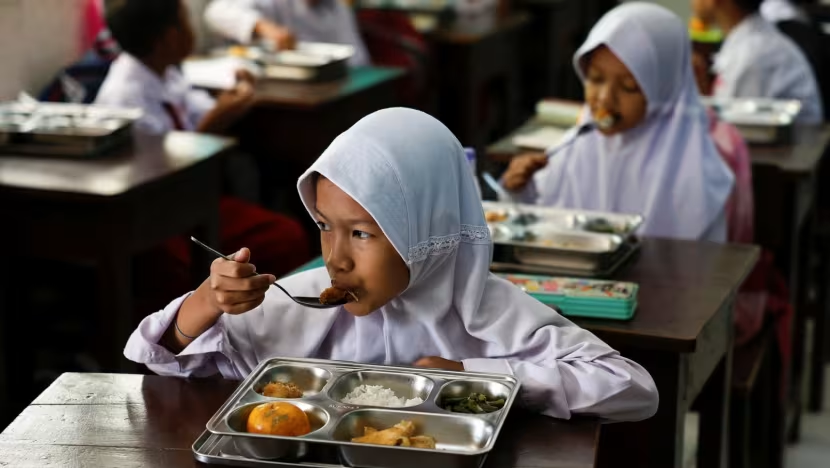Indonesia is at risk of an egg shortage as President Prabowo Subianto’s administration ramps up its flagship free nutritious meal program, according to the National Nutrition Agency (BGN or Badan Gizi Nasional).
BGN’s Head Dadan Hindayana said the number of beneficiaries was on track to reach its full-scale implementation of 82.9 million beneficiaries by the end of November. That would translate to a demand of 10,000 tons of eggs weekly, an estimated 400,000 tons annually.
While currently Indonesia produces an egg surplus of around 200,000 tons each year, that figure will not mean much given the potential increase in demand from the free meals program.
“In a short period, the 200,000-ton surplus could be wiped out. Without new entrepreneurs entering egg production, we might be forced to limit egg usage in the program,” Mr Hindayana warned.
The government previously viewed the surplus as a potential export commodity to the US, which has been struggling with supplies amid the H5N1 avian influenza infection in that country.
Free nutritious meal program
Beyond eggs, the program is also expected to require 350kg each of chicken meat and fruit, as well as 300kg of vegetables daily, for each nutrition service unit (SPPG or Satuan Pelayanan Pemenuhan Gizi) once it reaches full scale by the end of this year.
Since January, BGN has been rolling out partnership schemes to support President Prabowo’s free meal initiative, enlisting private restaurants and catering providers to help execute the program.
By March, the agency had established 1,009 SPPG that served meals for 3 million beneficiaries, which incurred a monthly cost of USD 65.03 million.
That figure is expected to grow to 1,533 SPPG serving 4.59 million people by the end of this month, which would result in higher costs.
Expansion of the program
To expand coverage in remote areas, BGN is also developing state-run SPPG, although these facilities are only expected to become operational in August.
The program’s full rollout will combine both public and privately run kitchens, gradually scaling up to 32,000 SPPG nationwide and targeting 82.9 million recipients, with a projected cost of USD 1.5 billion per month.
The government initially allocated USD 4.3 billion for the free meals program this year, but Finance Minister Sri Mulyani Indrawati announced recently that it would receive an additional USD 6 billion.

